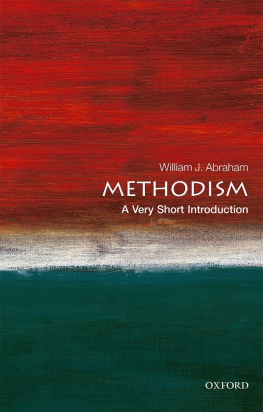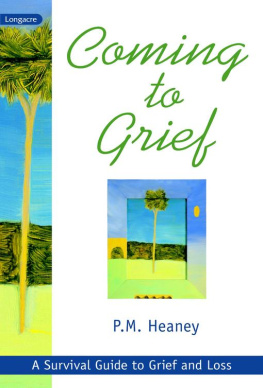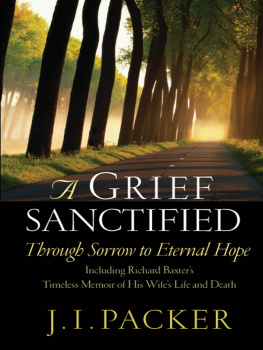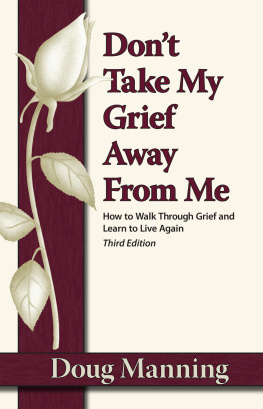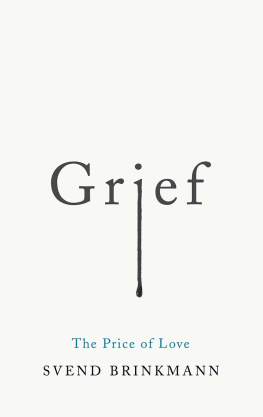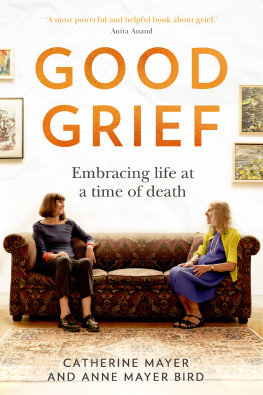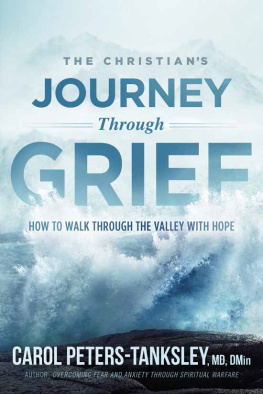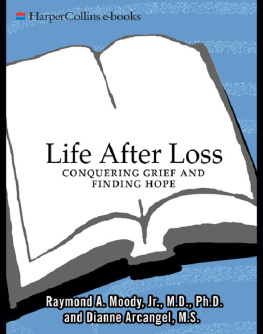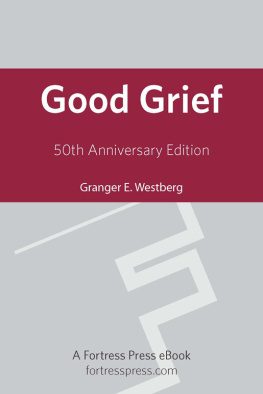Among the Ashes
On Death, Grief, and Hope
WILLIAM J. ABRAHAM
William B. Eerdmans Publishing Company
Grand Rapids, Michigan
Wm. B. Eerdmans Publishing Co.
2140 Oak Industrial Drive NE, Grand Rapids, Michigan 49505
www.eerdmans.com
2017 William J. Abraham
All rights reserved
Published 2017
Printed in the United States of America
26 25 24 23 22 21 20 19 18 171 2 3 4 5 6 7 8 9 10
ISBN 978-0-8028-7528-0
eISBN 978-1-4674-4906-9
Library of Congress Cataloging-in-Publication Data
Names: Abraham, William J. (William James), 1947 author.
Title: Among the ashes : on death, grief, and hope / William J. Abraham.
Description: Grand Rapids : Eerdmans Publishing Co., 2017. | Includes bibliographical references and index.
Identifiers: LCCN 2017018929 | ISBN 9780802875280
(hardcover : alk. paper)
Subjects: LCSH: DeathReligious aspectsChristianity. | GriefReligious aspectsChristianity. | Future lifeChristianity. | Theodicy. | HopeReligious aspectsChristianity. | Abraham, Timothy Fletcher, 2013.
Classification: LCC BT825 .A27 2017 | DDC 236/.1dc23
LC record available at https://lccn.loc.gov/2017018929
Unless otherwise noted, Scripture quotations are from the New Revised Standard Version of the Bible, copyright 1989 by the Division of Christian Education of the National Council of the Churches of Christ in the U.S.A., and used by permission.
In memoriam
Timothy Fletcher Abraham
May his memory be eternal
Contents


W illiam J. Abraham, gifted theologian and philosopher of religion, personal friend of mine, is well-versed in the literature on theodicy, that is, attempts to explain why, given who God is, there is evil in the world. He endorses the enterprise. Though he judges that no theodicy has succeeded in achieving the sought-for explanationthere is no persuasive theological rationale for much of the suffering we have to endurehe thinks many of them do illuminate various dimensions of Christian conviction. In the course of his discussion in this book he analyzes a few recent theodicies, highlighting those dimensions of Christian conviction that they illuminate and explaining why, in his judgment, they nonetheless do not explain why God allows evil.
On June 4, 2013, his adult son Timothy died unexpectedly, and Abraham was cast into deep grief. To lose Timothy was to fall precipitously into a deep black hole. It was a hole of darkness, numbness, despair, and waves of excruciating pain. In this hole of darkness Abraham found every philosophical or theological move utterly empty in wrestling with the problem of the loss of [his] son. The bottom line is that [he] wanted Timothy back.... Nothing by way of comment or explanation brought comfort, relief, or intellectual peace.
Why was that? If these philosophical and theological proposals developed in theodicy are cogent, given that I can readily entertain them, surely they ought to have made a difference to my grieving and my terrible sense of loss. The reality is that they made no difference; on the contrary, entertaining them would have been entirely hollow and they would have come across as inappropriate or vacuous.
Might it be that his inability to entertain any theodicy in his grief showed that the whole idea of theodicy [is] a snare and a delusion, as some claim? Abraham dismisses the suggestion. In no way does the death of his son undercut his judgment that theodicies do illuminate certain dimensions of Christian conviction. He writes, I think our work on theodicy should remain intact and should be subject to renewal and development.
Might it then be, as others have suggested, that what is needed by those in grief is pastoral counseling rather than theological and philosophical reflections? Was it words that console that he needed, rather than reflections that purport to explain?
Abraham rejects this suggestion as well. He could no more think about his situation along pastoral lines than he could along theological and philosophical lines. He could not think about it at all. He found himself incapable of reasoning about his sons death and his own grief in any sustained way. The effort to distinguish the pastoral from the philosophical and the more radical effort to reject work in theodicy both fail because they do not recognize or take seriously enough the significance of what happens in grief. What happens in this instance is the breakdown of our normal cognitive capacities. The darkness has snuffed out the light by which we engage in reason insofar as it relates to the excruciating loss involved.
The opening chapter of Among the Ashes is an in-depth consideration of this stark analysis. Though theodicies are relevant to the death of a child, and pastoral considerations relevant to the person in grief, the person in grief is incapable of entertaining those. In this experience we are at a loss for words; we are reduced to rest and silence; we cannot say anything positive; the mystery involved is ineradicable.... Words fail us; we are too traumatized to speak; we simply have to sit or walk around or hold our heads in our hands and live with our piercing pain, our tears, our sobs, and our silences. We have to do what we can to find a way to get up and go on.
Eventually the intensity of his grief subsided and Abraham found himself once again capable of engaging in sustained reflection. Three topics then drew his attention, to each of which he devotes a chapter: first, the nature of life after death, as Scripture presents it, and the assurance and hope of Christians that they, and the ones they love, will experience such life; second, emulating Job in living with assurance and hope but without explanation; and third, the bearing of Christs death on our death.
This is a deeply honest book. Abraham does not shirk from saying that in his grief he could not reason about the death of his son or about his grief. He does not shirk from saying that we have no theological explanation for the untimely death of children. He does not shirk from saying that, though we live without explanations, we nonetheless have ground for hope. Readers will find this honesty refreshing and consoling. It captures their experience, and it gives them permission to set aside pious talk and voice their own grief.
NICHOLAS WOLTERSTORFF

T his little book began life on the arrival of a kind invitation to give the Trinity Lectures at Trinity Theological College, Singapore, in 2015. I knew immediately the topic that I wanted to pursue. As the initial chapter makes clear, dramatic events in my own life were the precipitating cause. In addition, I have for long been convinced that the topic of death is not one to be shunned because of its sobering nature but one that cuts to the heart of what we believe. So I offer here my ruminations on some central issues that surely deserve our attention. Even so, I do not for a moment think that it can amount to any kind of comprehensive treatment of the full range of issues that need to be explored. Thus I do not touch, for example, on the whole topic of purgatory, a theme that has been taken up in bold new ways by some contemporary theologians and philosophers. I do not find their arguments at all persuasive. Among other things, I think that the theme of purgatory distracts from the marvel of what God has promised us in the gospel and underestimates the amazing power of God made manifest in the life of Christ and in Christian conversion. Even so, much more could have been written to fill out the network of issues that should detain us here.


